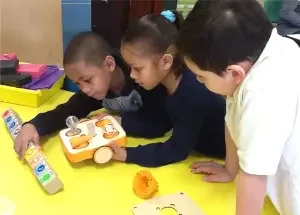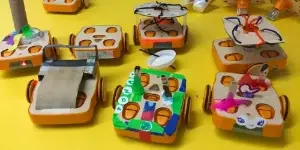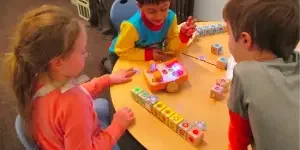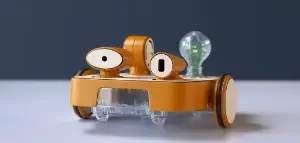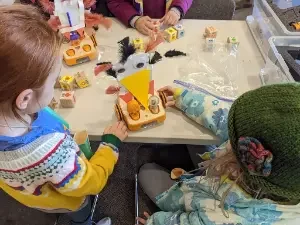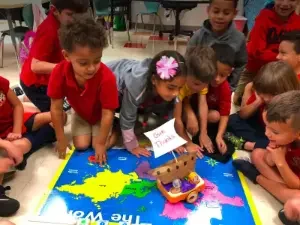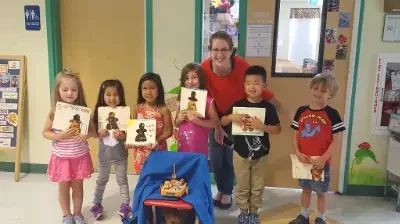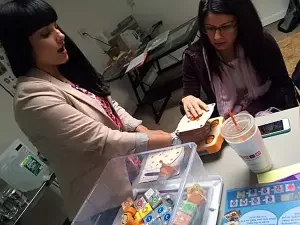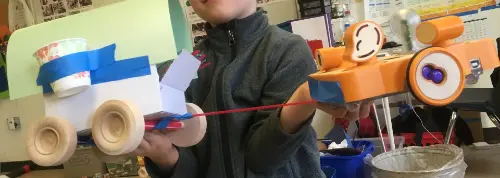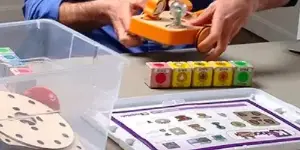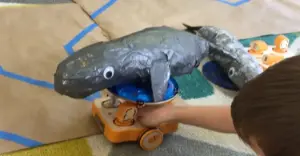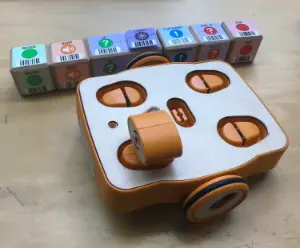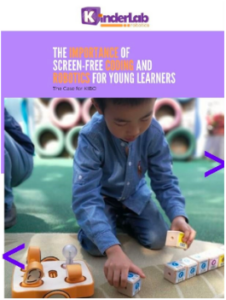STEAM Without the Screen: Education Post-Pandemic
It’s been a year since lockdowns and online school became commonplace in the US. This has educators and parents concerned about twin problems – the lack of social experiences and the surplus of screen time for children throughout the country. Screen-free robotics is a promising solution, addressing both challenges, when all children return to schools. It’s rare to find a program for early learners that provides fun, collaborative, problem solving and imaginative play that also builds a foundational knowledge of scientific thinking. KinderLab has a product and curriculum that does just that.
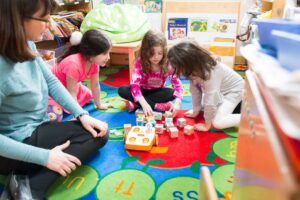
Most young children in the country have been attending school online. Kids deserve so much credit for how they’ve adapted to these circumstances, but rising screen time was a problem before the pandemic. Our devices can be hard to quit—even for adults. Screen-free robotics like KinderLab’s KIBO offers kids the chance to engage with technology in a more active, less passive way. It offers STEAM and computer science learning outcomes without the isolation or being inundated with blue light.
Understanding sequencing and computer science logic is a key 21st century literacy. Early experience with robotics will serve children regardless of whether they ultimately pursue a career in STEAM. The world is becoming automated and it’s important for young kids to have a baseline understanding of what that means and how it works.
Finding a hands-on way to access this knowledge is important for early childhood education. Early educators know that concrete play is imperative for learners under seven, and builds a real foundation for their understanding of abstract concepts. With KIBO, kids use the programmable wooden building blocks with barcodes to program their robot. They can also use the art platforms to redesign their KIBO robots as dancers, a character from a book, adventurers, bowling balls, racecars, and everything else young minds can imagine. KIBO opens doors for the sort of small group work and collaborative experiences that have been sorely missed. In this way, screen free robotics can start to fill the gap of social-emotional learning that the COVID-19 pandemic has left in its wake.
Throughout this past year many young learners have not had much chance to practice their play skills. This has parents and educators searching for ways to get them the opportunity to practice these essential skills – making friends, learning to compromise and take turns and repairing conflicts. Up until last March, school was a place where our kids socialized with their peers. Sitting together on the carpet, playing at recess, and laughing in the cafeteria were easy to take for granted until March 2020. These seemingly mundane experiences are important training grounds for essential social skills. For many young students, it’s been a lonely school year.
There will be many pieces to pick up and much to rebuild when our national population finally achieves herd immunity. Closing educational gaps will not be the least of these. Educators will need every tool they can access to make up for the learning lost to the trauma and isolation of a year in lockdown. KinderLab and KIBO are ready to meet the moment.
Learn the 6 Key Benefits of Using Robotics with Your Youngest Students!
![]() Introduce coding and robotics into your early childhood classrooms – in a fun and playful way!
Introduce coding and robotics into your early childhood classrooms – in a fun and playful way!

